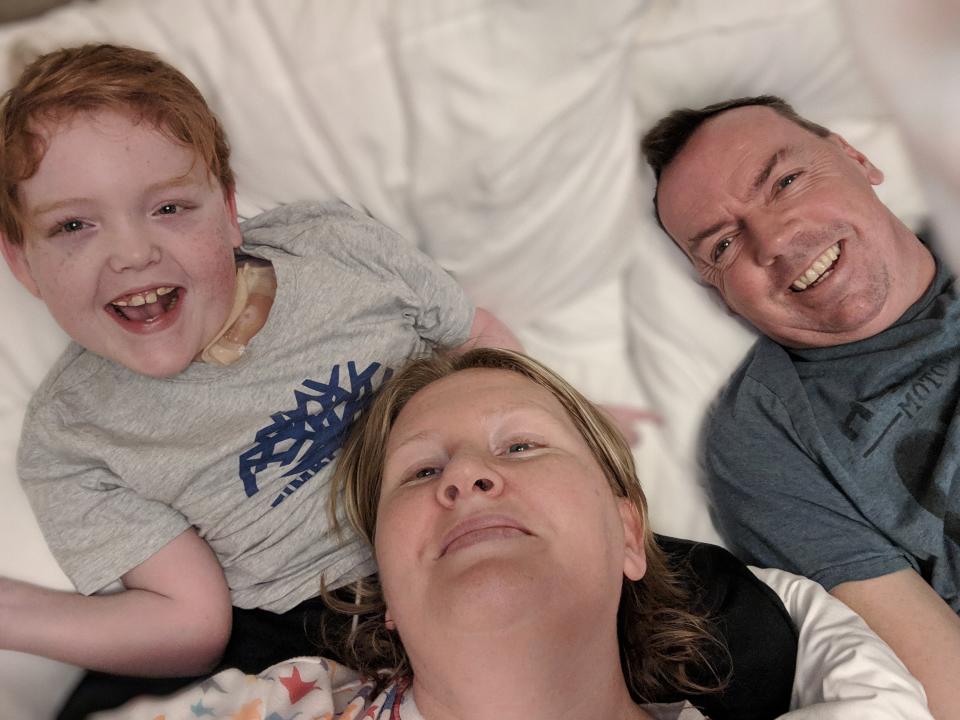Children’s hospices risk being ‘hugely reduced’ due to funding and cost issues
Children’s hospice services are at risk of being “hugely reduced” amid a lack of long-term sustainable funding and rising costs, a charity has warned.
Together for Short Lives urged the next prime minister to “end the sticking plaster approach to funding these crucial services” ahead of July’s General Election.
The organisation’s new report, Short Lives Can’t Wait: Children’s Hospice Funding in 2024, found costs at children’s hospices are “rising rapidly”, with charitable expenditure in 2023/24 up by 12% to £4.5 million compared to the previous 12 months.
Some 66.7% of children’s hospices said this was due to a hike in energy bills, while 86.1% said it was due to higher costs associated with recruiting and retaining staff.
According to the report, some 54% of children’s hospices in the UK ended the 2023/24 financial year in a net deficit.
Together for Short Lives extrapolated the figure across all 39 hospice organisations to estimate a total shortfall of £8.5 million.
In the current financial year, 72% of children’s hospices are forecasting a net deficit, the report added, with the total estimated to top £30 million.
Together for Short Lives also made a Freedom of Information (FOI) request to integrated care boards (ICBs), which 40 out of 42 responded to.
Based on the information shared, the charity estimated ICBs spent an average of £145.16 for every case of life-limiting conditions in patients aged zero to 24 in their local area, a fall of 5% compared to the previous 12 months.
It also revealed ICB funding varied by as much as £366 per child in 2023/24.
Andy Fletcher, chief executive of Together for Short Lives, said children’s hospices “are at a turning point” ahead of the General Election.
“Our report paints a bleak picture of rising costs, local funding cuts and the prospect of lifeline services for seriously ill children being hugely reduced unless the next government intervenes urgently,” he added.
Together for Short Lives is calling on the next government to review how children’s hospice care is funded and commit to maintaining, ringfencing and increased the £25 million in NHS England funding for services by the rate of inflation.
The charity also said it wants ICBs held to “greater account” for the way in which they commission children’s palliative care.
Mr Fletcher added: “For 18 years, families have relied on the central NHS funding for children’s hospices. The parties must commit to continuing it for the long term as a £25 million ringfenced grant which increases with the rate of inflation.”
Karina and Jason Watkins, from Widnes in Cheshire, have two disabled sons, Corey and Parker, as well as daughters Georgi and Lottie.
Corey, 14, was diagnosed with cerebral palsy at 18 months and is now receiving palliative care. The family has been supported by Claire House Children’s Hospice since 2016.
Mr Watkins said: “They don’t just help the boys, they help our two other children and us as a family. The sibling events are brilliant. They also put things on for us, so I play golf with the dads and meet other parents that have disabled children.
“We would be totally lost without Claire House. Back to being tired, not being parents, just being carers. That’s not a life for us and not a life for the children.”

Mr Fletcher urged the next prime minister to “end the sticking plaster approach to funding these crucial services”.
He added: “We need a review which leads to a more permanent, sustainable funding solution.
“Many seriously ill children will not be alive the next time the UK goes to the polls. We have one chance to get it right for them. They do not have time to wait.”
A Conservative Party spokesman said: “It is essential that children have the dignity and compassion they deserve at the end of their lives.
“We have supported children’s hospices through the Children and Young People’s hospice grant, allocating £25 million of grant funding for children’s hospices this year.
“Rishi Sunak and the Conservatives will continue to deliver high-quality palliative care services and support children’s and adults’ hospices.”

 Yahoo News
Yahoo News 
